TRANSFORM YOUR TEAM'S SEASON WITH PROFESSIONALLY PLANNED SESSIONS
Use our expert plans or build your own using our library of over 700+ drills, and easy-to-use tools.
JOIN NOWIf you have 30 min before the start of a match how should you prepare a team of under 10 players. How do you get them suitably motivated to hit the ground runnung with a high level of intensity.
William
Do we really want Under 10's to have a high degree of intensity?
I would respectfully suggest that children of this age actually require very little in the way of a warm up. They could have some fun warming up by doing some passing practises but really the warm up should be all fun games.
I have attached a fun warm up game and there are more in our Drills section on the tab above.
Just to re emphasise the point - research shows us that children give up rugby in their teens if they are pushed to perform at too high a level too early. For this reason I suggest ensuring that coaching this age group is about having fun and learning skills rather than winning games. Winning is great fun too but it should be a natural result of our coaching rather than the sole aim of it.
I hope this helps and please ask more about this subject if you want.
Simon

William,
I have to agree with Simon.
I coach a variety of age groups from U 10 through to a level 7 senior side, and I always work towards giving my teams a certain amount of autonomy with regards to pre match routines. My philosophy is that although I know what motivates me, what motivates me won't be the same as what motivates my players. However, with regards to the younger age groups I coach, this doesn't mean a 'free-for-all'.
For younger teams, I have a variety of small sided games and practices that we designate as pre-match routines, and I ask the players on the day which ones they would like to play. We treat it as a training session, of which the match forms a part of. Every opportunity should be taken to foster a learning environment, and in my experience, the kids learn more when they don't feel pressured and are enjoying playing.
I find the LTAD model a great benchmark as to what coaches should be looking at on the ladder of a childs sport development.
Simon & Denis Thankyou for responding. To reword my question, our players seem to be slow starters and only seem to really get going in the second half of matches. How can I help them ?
What do you do at present?
5 min - touch rugby 10 min - Forwards (scrum/line out) - Backs (practice moves / moving ball down line) 10 min - ruck & run (backs/forwards together) 5 min - pre match talk
How often do you play the full game in practice? Or do you not have numbers to allow this?
Unless we're trying to introduce new techniques or tactics, I run sessions as a full game (with conditions) with a technical area operated by other coaches, where we rotate players out of the game to practice individual skills and/or unit tactics.
I generally find that at under 10-12 ages, if this is done regularly, then players get used to game 'nerves', which is what I believe causes slow starts.
Its a game and its the same whether its played against their team mates or other teams. I see so many coaches, parents and team managers 'Big-up' a game or the opposition that the kids are scared stiff by the time it comes to playing. We always play and train for the kids enjoyment first, not the gratification and satisfication of the coaches and parents.
Hope this helps
30 minutes to prepare under 10's before the game is a credit. One can access them on how to run with the ball, with open space. They should be ready to fast enough 'cos this is where chances of 'try' are helpful. The forwards, be it three or five depending on how they want it MUST always get that ball out of Scrum and flow it out to the winger ( backs ) who can do the run and make a 'try'. The Coach in charge of this Under 10's should always remember to instruct them on safety of the game.
It is not easy to have that long to warm up before a game usually, and we did have the same slow atart problem. As we do not stream our players, teams are usually different from one game to the next which partly explains the slow starts. What we are doing now is a rucking drill (1 player hits the bag, 2 support, 1 picks up and passes) in quick succession so the boys warm up/wake up, then followed by a game of touch dividing the team in 2. It gets hearts pumping, and providing timetables are adhered to more or less (!), they start the game in the right frame of mind. I also remind them of the last time they got caught out by the other team (whether it was true or not!) and whether they want it to happen again, and I find that we are a lot better than we were. I coach U9s, but I cannot see doing much different next season.
Just a thought.....Have you set players into different positions yet?
Dennis Thankyou for your thoughts. I think you may be right when you say "that I see so many coaches, parents and team managers 'Big-up' a game or the opposition that the kids are scared stiff by the time it comes to playing." In answer to your question we currently use games (amended rules to highlight a particular part of the game - which I assume is what you mean by "with conditions"), combined with some specific drills (e.g scrum practice)during a training session and then have a short match at the end of a training session.
For my youngsters, they seem to like a running and passing activity at the start, so we place 4 cones 10 metres apart in a square, and they make 3 lines (we play 12 a side at Under 11). The first 4 then runs and passes left, then they run around the RIGHT cone, align in the same position, and pass left again, running round the next RIGHT cone. They do this 4 times against the watch. Then the 2nd line runs, then the 3rd line, with lots of "time" calling. They are so keen to get the fastest time, they often forget they are warming up. Each run lasts about 20-25 seconds, and we do 2 sets each passing left, and 2 right. Don't even need to promise rewards for the fastest - they compete enough. Then we hit the tackle shield, ruck and pass out for a few minutes, then we play 8 vs. 4 touch between the 22 and goal line. 4 minutes each team, then change attack and defence. The winning team is the 4 "best" defenders. Drink of water and we are ready to go. We were less than brilliant from a results point of view, but the lads enjoyed their games, and always started bright and ready.

in more ways than one
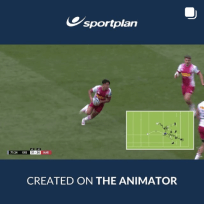

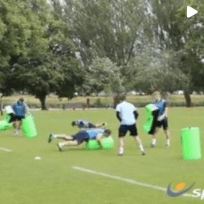
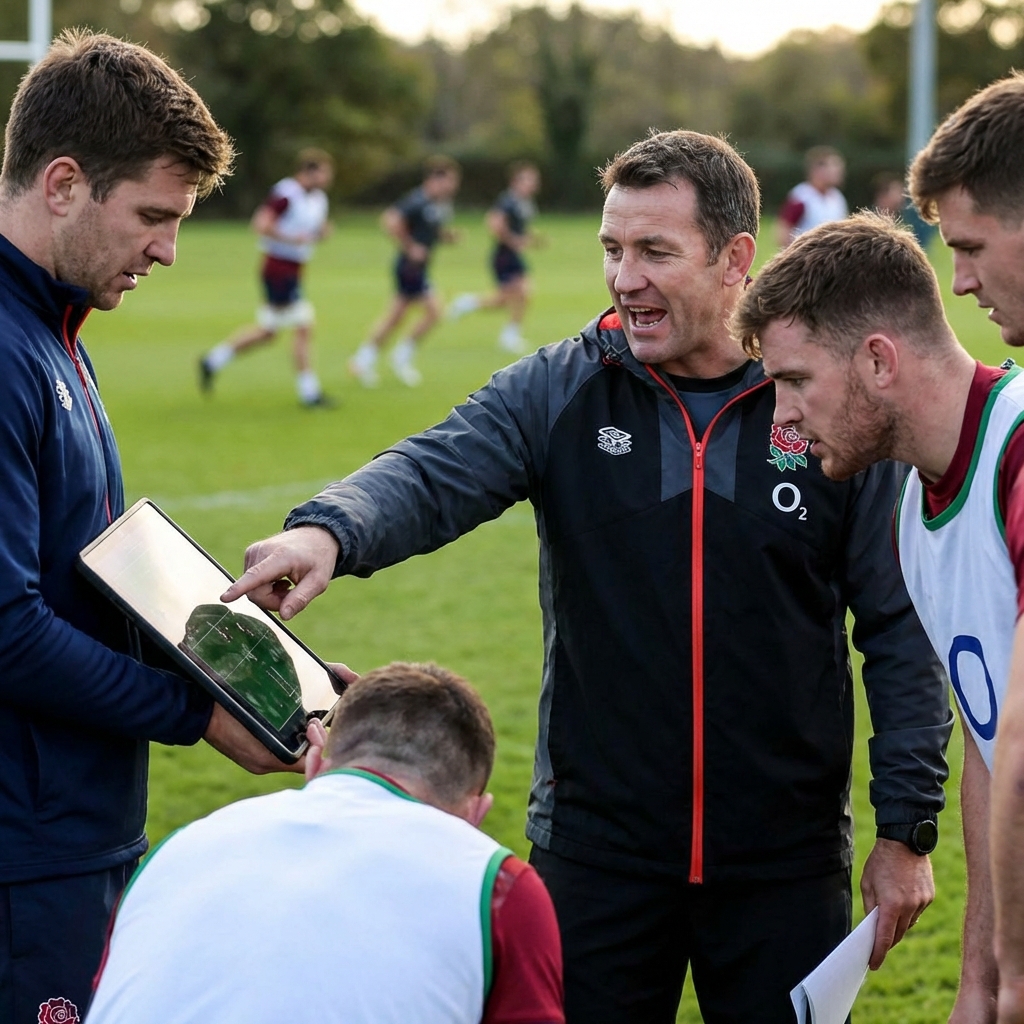
From France's collision dominance to England's folding defence - what grassroots coaches can learn from the 2026 Six Nations.
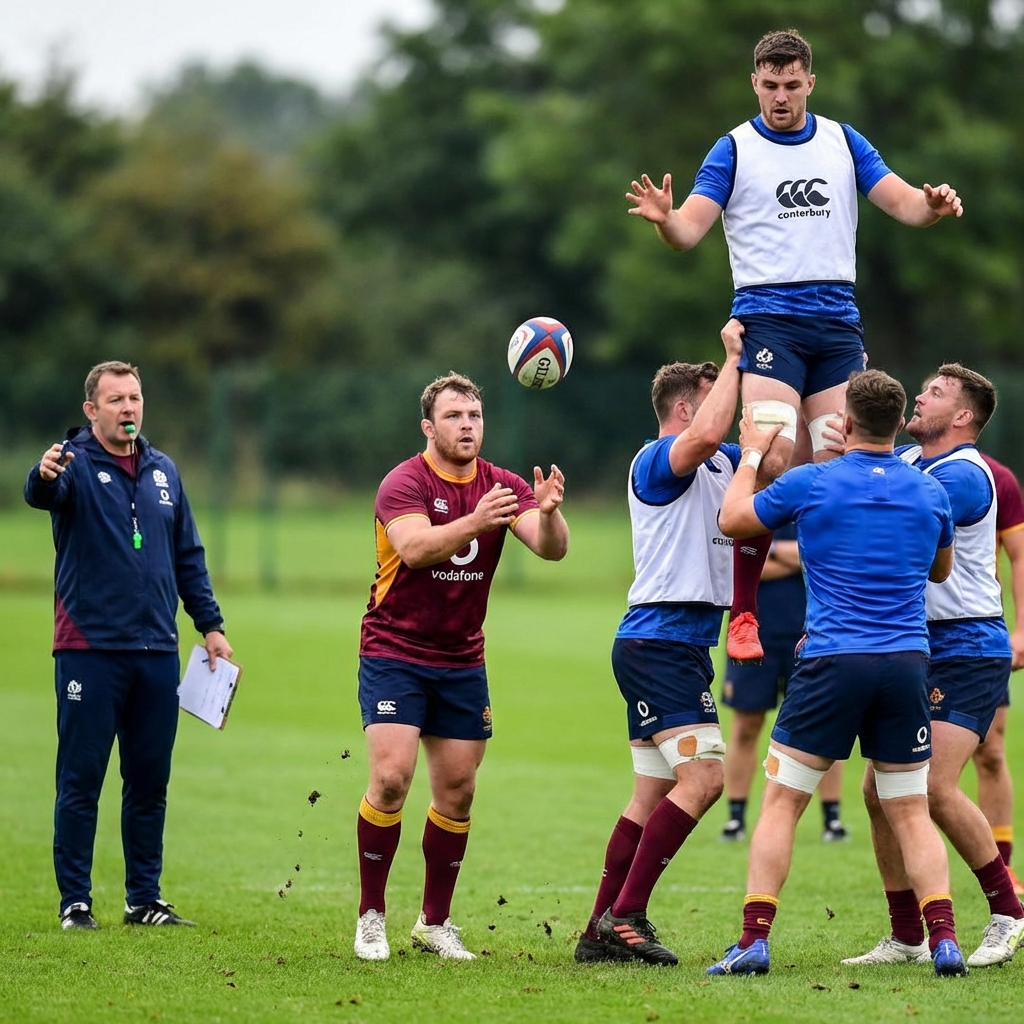
The removal of "not-straight" on uncontested lineouts transforms your set-piece options. Here's how to exploit the new rule.
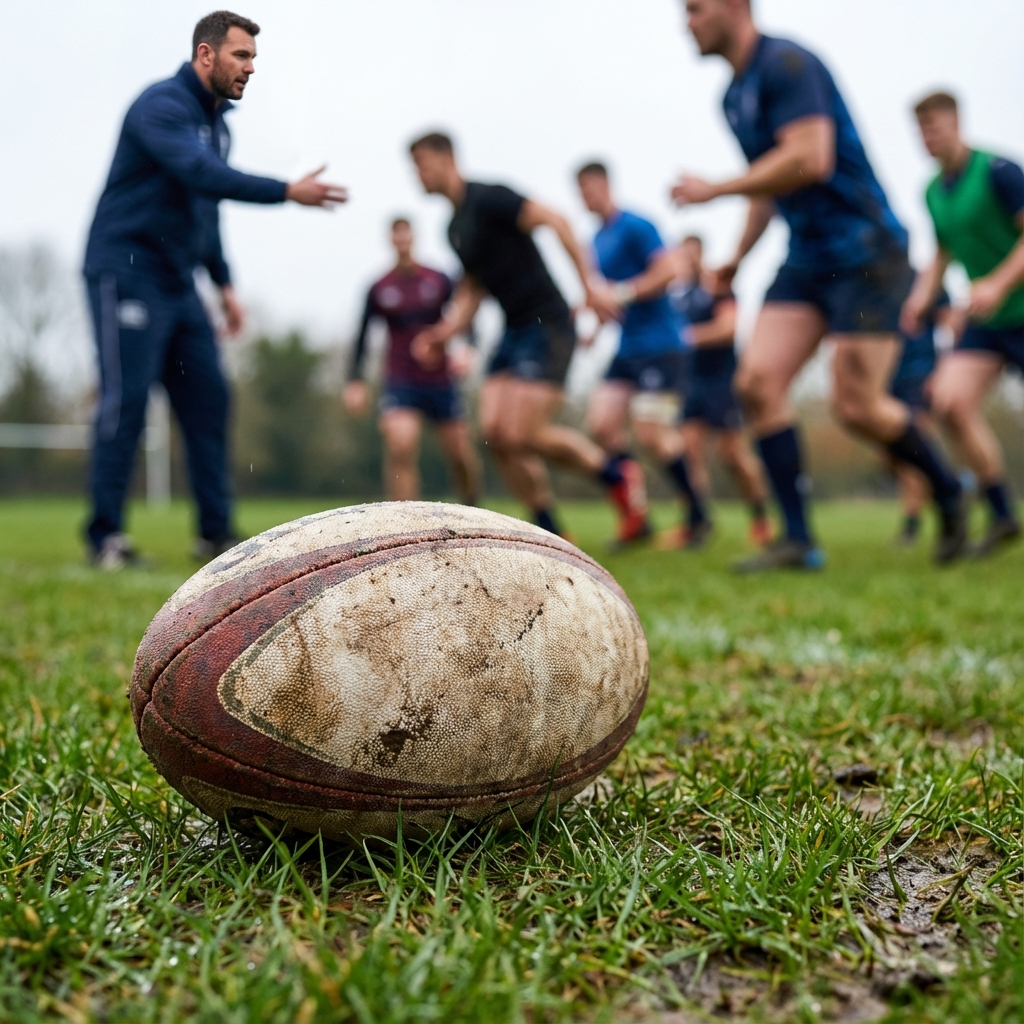
2026 brings revolutionary changes to international rugby: a brand new global tournament, historic tours, and law changes that will reshape the game. Here's everything coaches need to know.
Use our expert plans or build your own using our library of over 700+ drills, and easy-to-use tools.
JOIN NOW